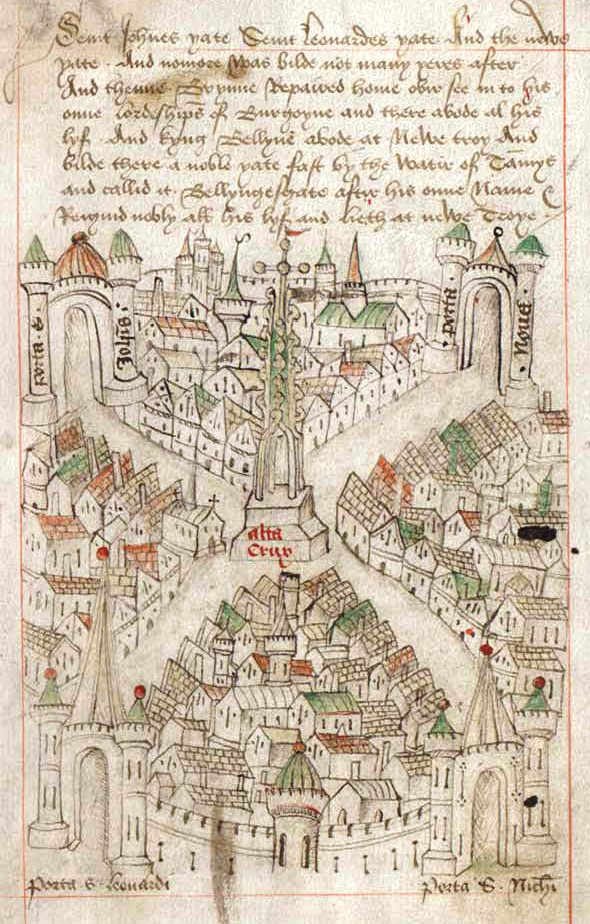background
Early bios of George Wathen (Worthen) are brief and sometimes give his name as John. Luckily, a great amount of researchwas done
english
George Wathen was born in Bristol, England around 1597. His father, also George, was born c. 1563 in or around Bristol, Gloucestershire, England. He married Joyce White on 9 August 1589 at St. Nicholas, Bristol. By 1600 he and his family were living in the parish of St. Stephen, Bristol. By then George and Joyce had three sons: William, George and Edmund, who were to follow in the footsteps of their father and become Joiners (Woodworkers) and a daughter Mary. William apprenticed himself to his father, George was apprenticed a period of He and Margery Heywood were married
On 16 July 1626, I admitted George and his brother Edmund as a burgess in the city of Bristol.
Early bios of George Wathen (Worthen) are brief and sometimes give his name as John. Luckily, a great amount of research
 |
| c.1500 map of Bristol |
On 16 July 1626, I admitted George and his brother Edmund as a burgess in the city of Bristol.
George and Margery's first child, a daughter Deborah, was baptized Deborah was followed by John, b. 1627, bapt bapt on
Bristol is an ancient port city in the West of England. Many ships left the Bristol harbour for the New World, presumably George, Margery and their children, Deborah and Ezekiel, sailed for New England from their home city. George's skill as a joiner was in great demand in the colony as towns and settlements sprung up and houses and municipal building needed to be built
There was a ---- Wathen recorded in Lynn, Mass in 1638, this is possibly our George, but he was definitely in the Colony by 1640 when he was given was appointed he was admitted was recorded
George in Salem
| town sign |
Death of George
The death of a husband and father is a tragedy at anytime but for a young family, without the support of extended family, it had to be a nightmare. But, the story gets worse, on 20 July 1644, the inventory of the estate of Margery Wathen, the widow , was recorded Clifford Stott G eorge Wathen in the Register, Margery had a very large wardrobe. She speculates that Margery and possibly Deborah were seamstresses, that would explain all the lace and ribbons and material that was inventoried
Orphan
Administration of Margery's estatewas turned 27 August 1644 Ezekiel was ordered by the Quarterly Court of Salem be bound March 1633 /4. On 24 June 1656, Ezekiel was freed by the Quarterly Court
Cousin William
Here's an interesting side note, George Wathen's sister Mary, married Andrew Sargent, and they had a son William Sargent who immigrated. He was the William Sargent of Gloucester, Massachusetts who is and was sometimes confused choose to was deposed be appointed administrator not have done anything in the Salem Quarterly Court of September 1657 Ezekiel was appointed
Orphan
Administration of Margery's estate
Cousin William
 |
| Prince Rupert |
My Worthen Line with links:
George Worthen and Margery Hayward
Ezekiel Worthen and Hannah Martin
Ezekiel Worthen and Abigail Carter
Ezekiel Worthen and Hannah Currier
Jacob Worthen and Mary Brown
Rachel Worthen andEnoch Rowell
George Worthen and Margery Hayward
Ezekiel Worthen and Hannah Martin
Ezekiel Worthen and Abigail Carter
Ezekiel Worthen and Hannah Currier
Jacob Worthen and Mary Brown
Rachel Worthen and




No comments:
Post a Comment